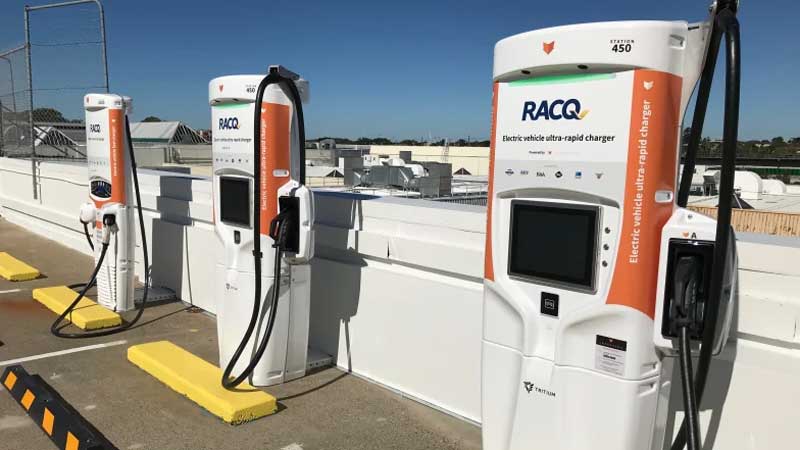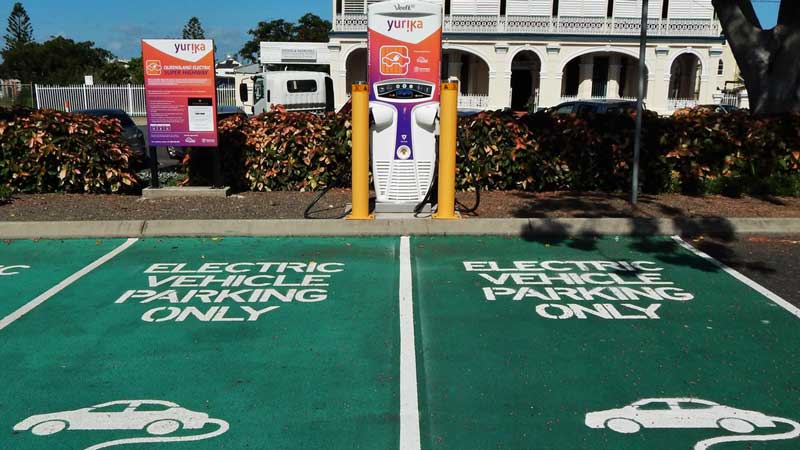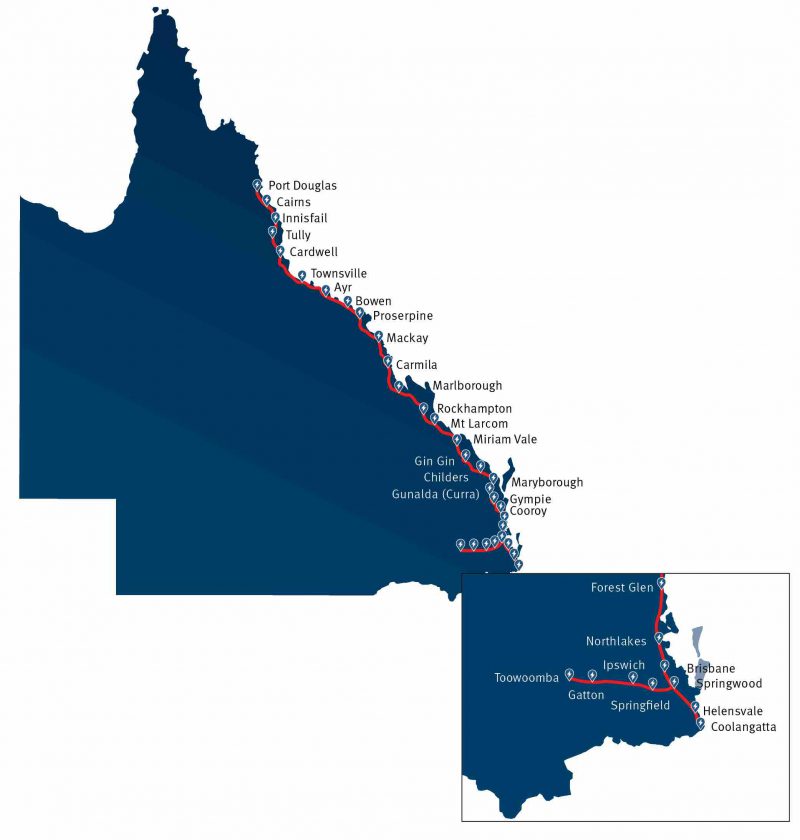The Queensland state government will partner with the RACQ and state owned energy company Yurika to add 13 new EV charging stations to the state’s Electric Vehicle Super Highway (QESH), which it describes as the world’s longest electric super highway in a single state.
The Palaszczuk Government announced that 13 new EV charging stations along the QESH would boost the total number of charge points between Coolangatta and Cairns, and west to Toowoomba, to 31.
“Since we were elected in 2015, the Palaszczuk Government has been committed to supporting more Queenslanders to use electric vehicles,” said Queensland Transport and Main Roads Minister Mark Bailey. “Queensland was the first state in Australia to release an electric vehicle strategy.
“A key action from that strategy was building the QESH, which began operating in early 2018 and eventually included 18 charging sites.”
New EV charging points will be built at Springwood, Ipswich, North Lakes, Forest Glen, Gympie, Gunalda (Curra), Gin Gin, Mt Larcom, Proserpine, Ayr, Cardwell, Innisfail, and Port Douglas.
One of these sites, in Proserpine, was identified earlier this year as a potential site, alongside another site at Ingham in Hinchinbrook Shire.
The $2.5 million project to add 13 new EV charging points is already well underway, according to the Queensland Government, with civil works already completed at most sites.

Charging an EV along the QESH costs only 20 cents per kilowatt hour, making it the most affordable charging network in Australia.
“We’ve seen EV sales in Australia grow by 200% in the past year alone and EV technology is only going to continue to grow in popularity, which is why RACQ is so keen to sponsor this initiative and provide Queensland drivers with more options for travel,” said RACQ Head of Public Policy Dr. Rebecca Michael.
“We’re all holidaying at home this year due to COVID-19, and these new chargers make it easier for EV drivers to get out and explore our great State.
“We know ‘range anxiety’ can be a real concern for drivers afraid they can’t get from their desired location on one charge,” Dr. Michael added. “Having a comprehensive and connected charging network across our State will give motorists confidence to switch to low emission vehicles.”
All 13 new fast-charging sites are due for completion by the end of the year, and remain powered entirely by renewable energy – either through direct green energy credits or offsets.
Joshua S. Hill is a Melbourne-based journalist who has been writing about climate change, clean technology, and electric vehicles for over 15 years. He has been reporting on electric vehicles and clean technologies for Renew Economy and The Driven since 2012. His preferred mode of transport is his feet.


